Peking University, Nov 10, 2018: On November 8, the 14th Public Forum of Chinese Journalist Day kicked off at the Center for Innovation and Entrepreneurship of Peking University. The forum focused on the ties between the 40-year-old Chinese Economic Reform and the memory of journalism and attracted over 220 attendees including journalists, hosts, experts, teachers and students from universities in Beijing.
The forum was held jointly by the Peking University Television Studies Center, School of Journalism and Communication, and Septwolves Cultural Development Fund. The school leaders, distinguished research fellows of Television Studies Center and practitioners in the field of media were invited as guests. Professor Yu Hong, vice president of School of Journalism and Communication and director of Television Studies Center, presided over the forum.
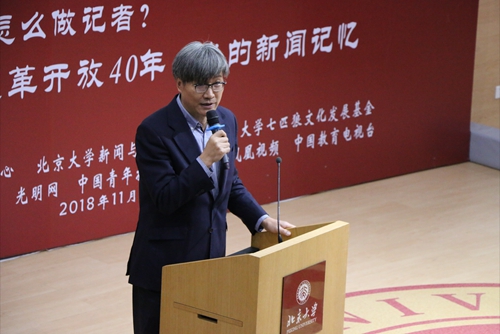
Wang Bo at the opening ceremony
In the opening ceremony, Wang Bo, vice chairman of Peking University Council and vice president of Peking University, said the Television Studies Center was an important research and practice platform of journalism in PKU. He expressed his gratitude to the Center’s efforts to focusing on frontier issues of media. Wang Bo said it was honorable to be a journalist and hoped that the forum could boost Chinese reform in the next 40 years with deep thinking and exploration.

Yu Hong giving her speech
As a main founder and organizer of the forum, Yu Hong elaborated the reasons of the Center’s persistence and expressed her care and respect to those journalists who were brave to take risks and give lights to the public.
“Retrospect and Witness -- Changes and Breakthroughs of Journalism in the Past 40 Years” and “Introspection and Advance – Fantasy of the Future” were two propositions discussed by the guests then.
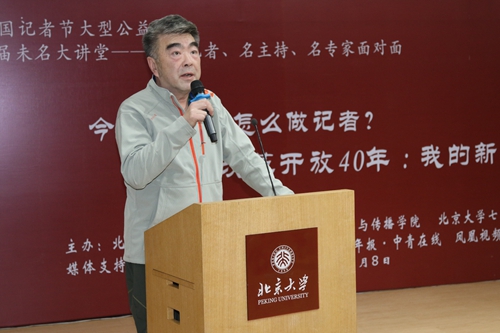
Chen Xiaochuan giving his address
Chen Xiaochuan, former president of China Youth Daily, said that though little reports were given concerning its history of journalism in 40 years of reform, the 1980s had witnessed great advances of Chinese journalism. Chen applauded the efforts of those predecessors who made journalist a career to promote the reform and progress of China.
Jing Yidan addressing to the audience
Jing Yidan, a host of CCTV, viewed journalist as a recorder of the Zeitgeist and a witness of opportunities in transitions. She indicated the situation that youth’s focus had been driving from television to new media, which required more studies.
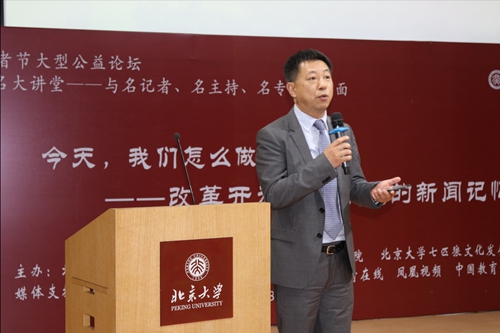
Liu Chang sharing his memories of journalism
Liu Chang, vice chairman of Communication University of China Council and director of European Media Research Center, recalled 10 major events in the history of Chinese journalism development. He added that since Chinese journalism education originated in Peking University, he was proud of being a PKUer.
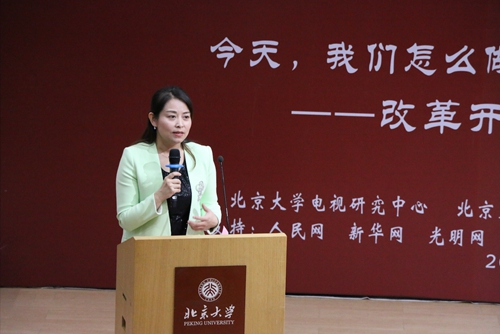
Zeng Jia showing her views of journalism
Zeng Jia, chief correspondent of Jiangxi TV Station and winner of Zou Taofen Prize noted that the education received in PKU guided her to a new perspective of analyzing events. Sharing three unforgettable experiences as a journalist, she showed to the audience how she stoutened her volition of being a journalist.
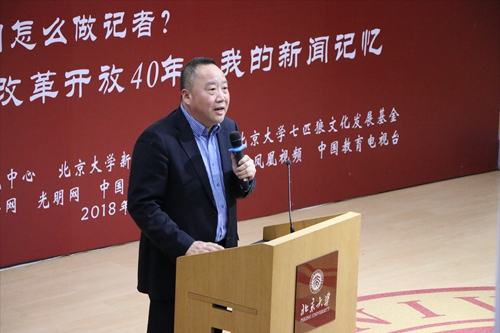
Teng Junjie giving his speech
Chief Supervisor of SMG Teng Junjie, answered the question of “How to be a journalist at present”. He thought that the expertise and dedication could shape a qualified journalist.
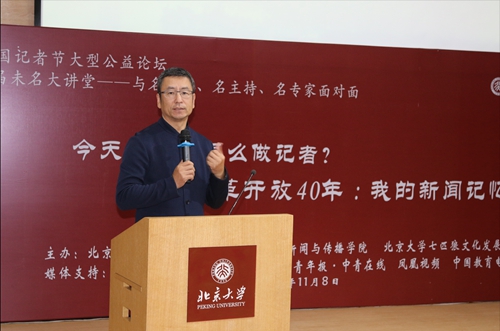
Bai Yansong addressing
Bai Yansong introduced the core abilities of a journalist in times of rapid change. In a rapidly changing era, the skills of prompt abstraction of essentials, concise and precise questioning, writing, and expression, were of vital significance to journalists.
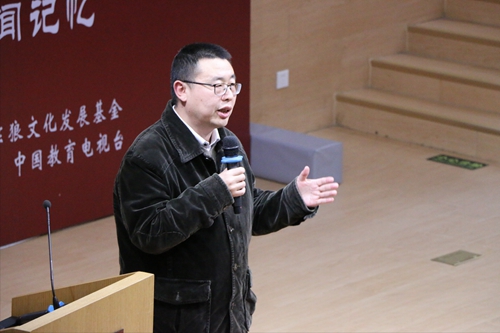
Zhang Zhijun talking to the audience
Zhang Zhijun pointed out that a good journalist should stay true to the mission. The 4 hearts—a curious heart, a true heart, a meticulous heart, a caring heart—were requisite to be a good journalist.
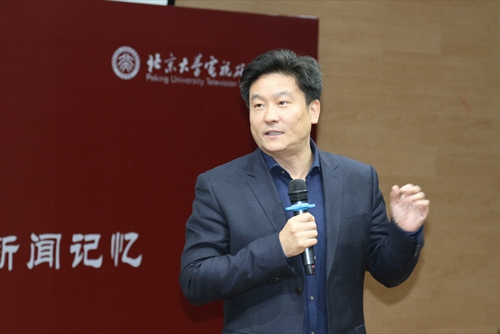
Wu Keyu sharing his concept
Wu Keyu, director of Department of Program Development of CCTV, raised a concept of “Restart of Chinese television” and claimed that a journalist should adapt to the environment of new media.
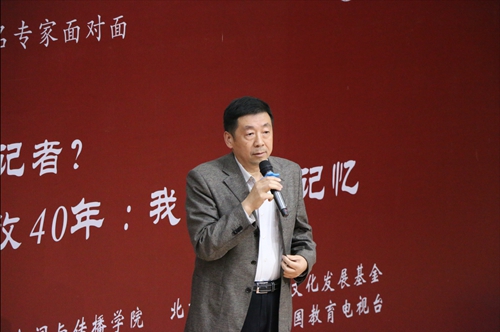
Lu Xiaohua expressing his views
Director of Department of Audio of Xinhua News Lu Xiaohua expressed his expectation of future journalism and required students to influence people with the power of viewpoints based on a solid foundation of expertise.
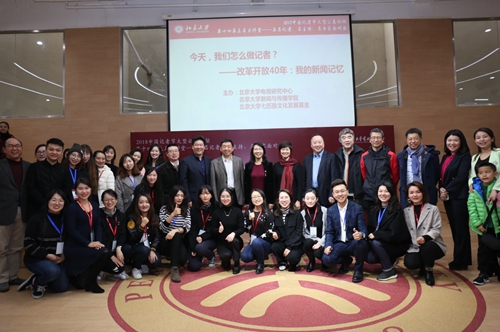
The group photo of attendees
In the end, Yu Hong delivered a closing speech. She pointed out that journalism and communication made her realizing self-value and more related to social development. Education, she said, should stick to the cultivation of core abilities in the cross-media era.
Written by: Ge Pengcheng
Edited by: Wei Yunqi











